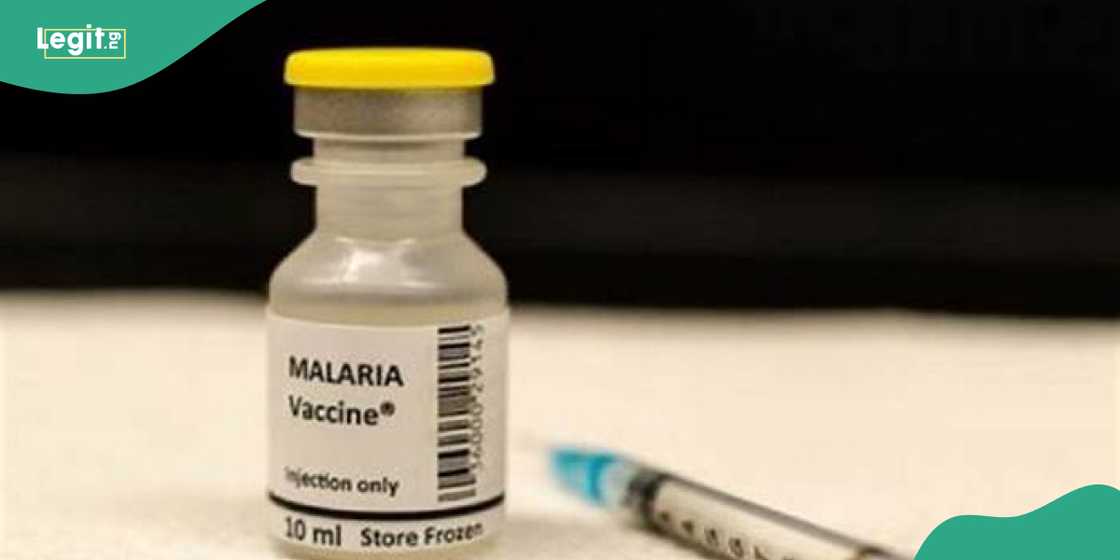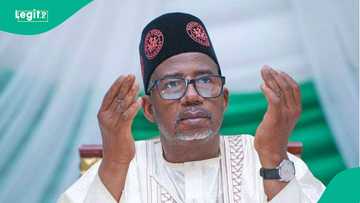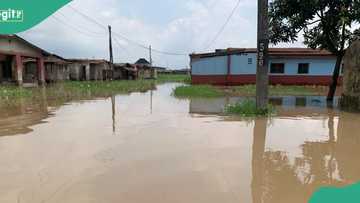JUST IN: WHO, UNICEF, Others React as Over 800,000 Doses of Malaria Vaccine Arrive Nigeria
- Nigeria has received 846,000 doses of the RTS,S/AS01 malaria vaccine to reduce the high burden of malaria
- The initial vaccine rollout will target Bayelsa and Kebbi states, addressing challenges in reaching remote communities
- Global health partners like WHO, UNICEF, and Gavi have expressed support for the vaccine's implementation
Nigeria has received 846,000 doses of the groundbreaking RTS,S/AS01 malaria vaccine.
Legit.ng reports that this is aimed at reducing the high burden of malaria, particularly among children and vulnerable groups.

Source: Getty Images
Prof. Muhammad Pate, Coordinating Minister of Health and Social Welfare, announced the arrival of the vaccines at a press event in Abuja on Thursday, October 17.
FG: Vacines to help tackle malaria-related deaths
The vaccines are expected to play a critical role in reducing malaria-related deaths, particularly in regions where access to healthcare is limited, Vanguard reported.
He said:
"Our target is to prioritize regions most affected by malaria, particularly rural areas. The vaccine will significantly bolster our ongoing elimination efforts.
"With proper infrastructure, political will, and continued international collaboration, Nigeria is poised to make substantial progress in reducing the disease’s toll and moving toward malaria elimination."
Bayelsa, Kebbi targets for first rollouts
The initial phase of the vaccine rollout will target Bayelsa and Kebbi states, which have been identified as having a high malaria burden and logistical challenges.
Dr. Muyi Aino, Executive Director of the National Primary Health Care Development Agency, emphasized that the regions have been difficult to reach due to geographical challenges, but improved cold chain systems will ensure the vaccines reach remote areas, The Punch reported.
Aino said:
"In Bayelsa, with its significant riverine areas, reaching remote communities has been challenging.
"However, the strengthened healthcare systems are expected to ensure the vaccine reaches even the most isolated populations."
WHO, UNICEF, others back vaccine rollout
Global health partners, including WHO, UNICEF, and Gavi, are providing technical and financial support to ensure the vaccine’s successful implementation.
Dr. Eduardo Celades, UNICEF Chief of Health in Nigeria, highlighted recent upgrades to the national cold storage infrastructure, which will enable safe distribution of vaccines across the country.
Prof. Gbenga Mokuolu, National Coordinator of the National Malaria Elimination Programme, stressed that sustained efforts in healthcare delivery, education, and awareness campaigns are essential to the success of the vaccination drive.
The WHO representative in Nigeria, Dr. Walter Mulombo, expressed optimism about the vaccine’s potential to save lives.
He underscored that the combination of the vaccine with other preventive measures could significantly reduce the malaria burden in Nigeria.
WHO 'approves' local production of antimalarial tablets in Nigeria

Read also
World Bank praises CBN governor Yemi Cardoso’s policies on naira, interest rate, gives reasons
Legit.ng earlier reported that the World Health Organization (WHO) has granted prequalification to Swiss Pharma Nigeria Limited's (SWIPHA) sulphadoxine/pyrimethamine antimalarial tablets, which are formulated in 500/25mg doses for malaria prevention in children and pregnant women.
WHO prequalification evaluates the quality, safety, and effectiveness of medicines.
PAY ATTENTION: Сheck out news that is picked exactly for YOU ➡️ find the “Recommended for you” block on the home page and enjoy!
Source: Legit.ng



